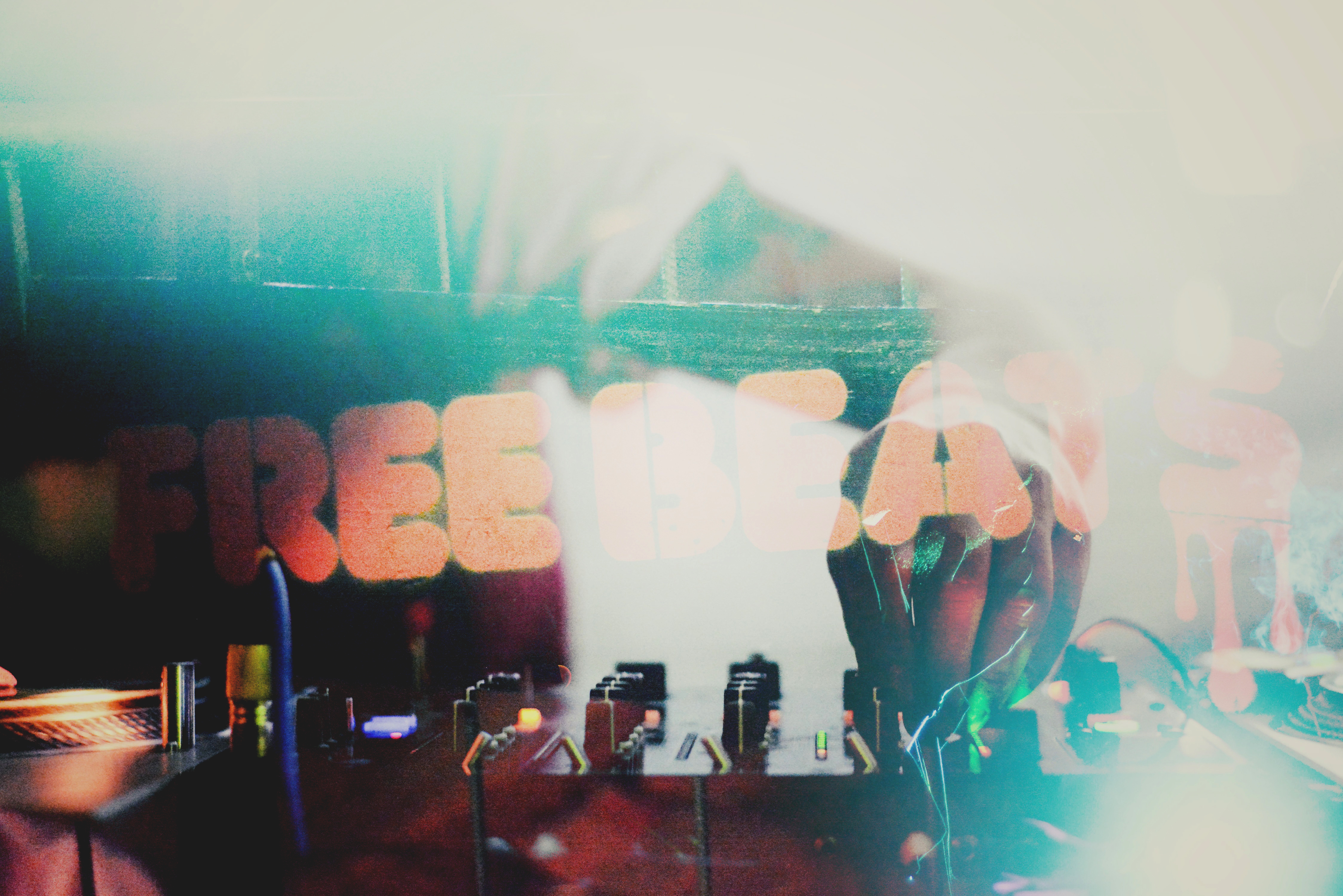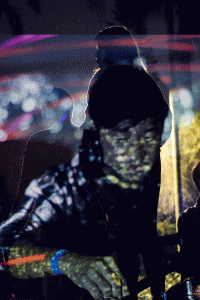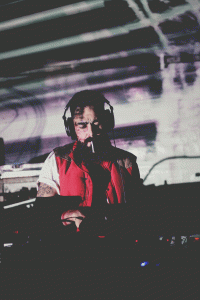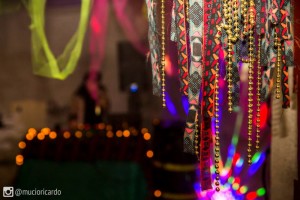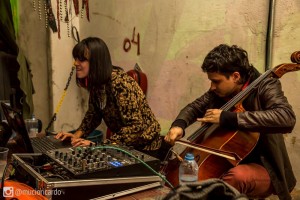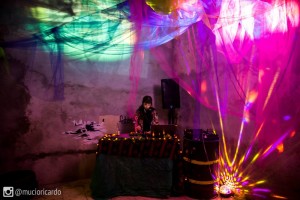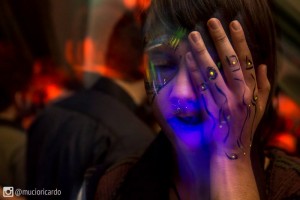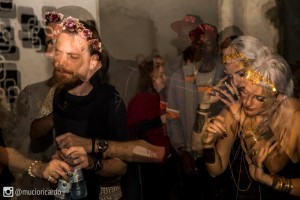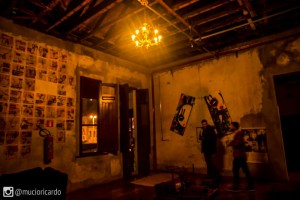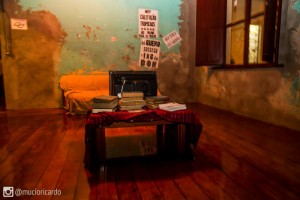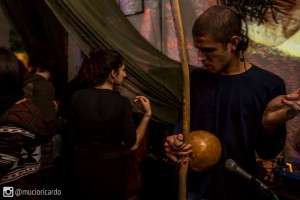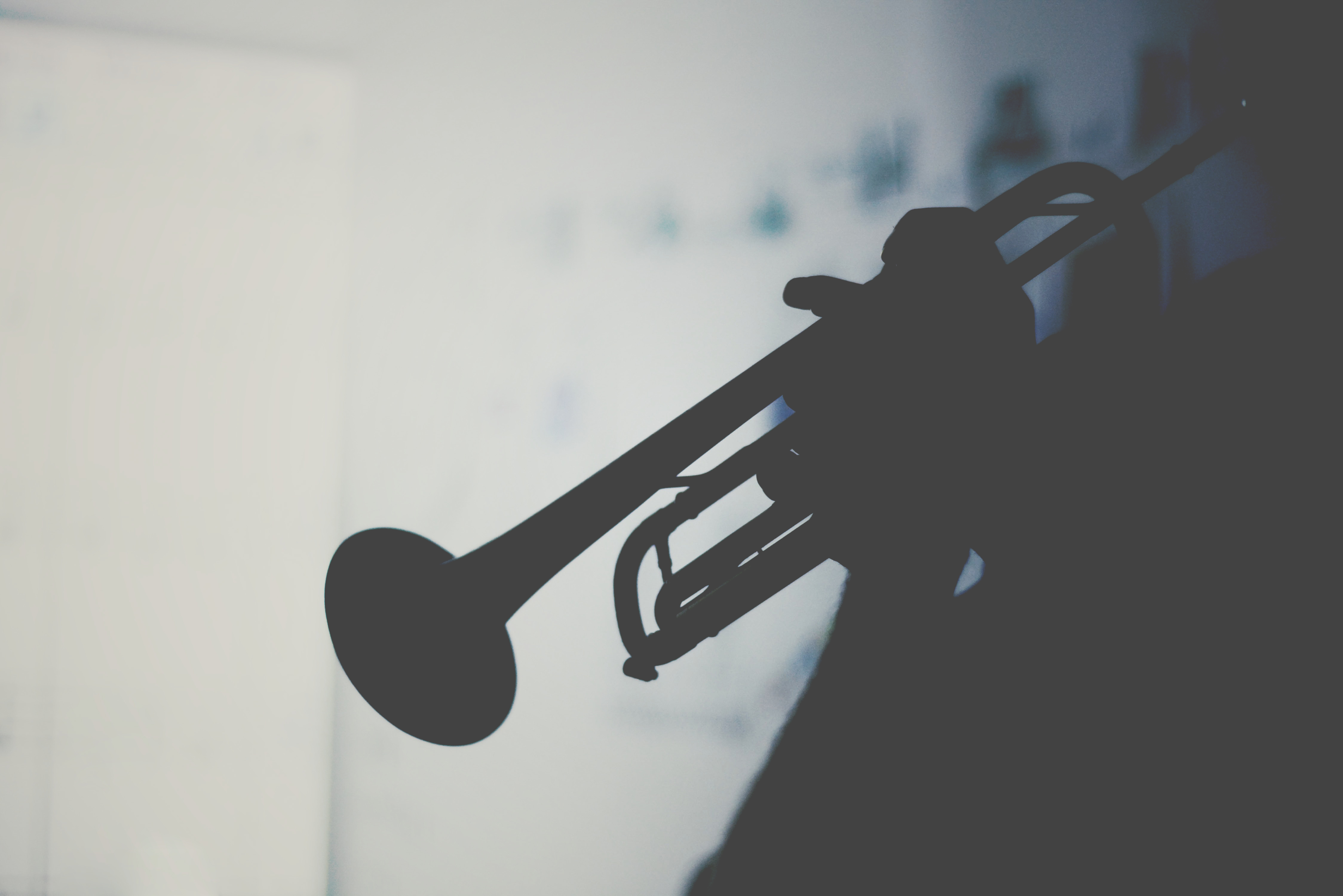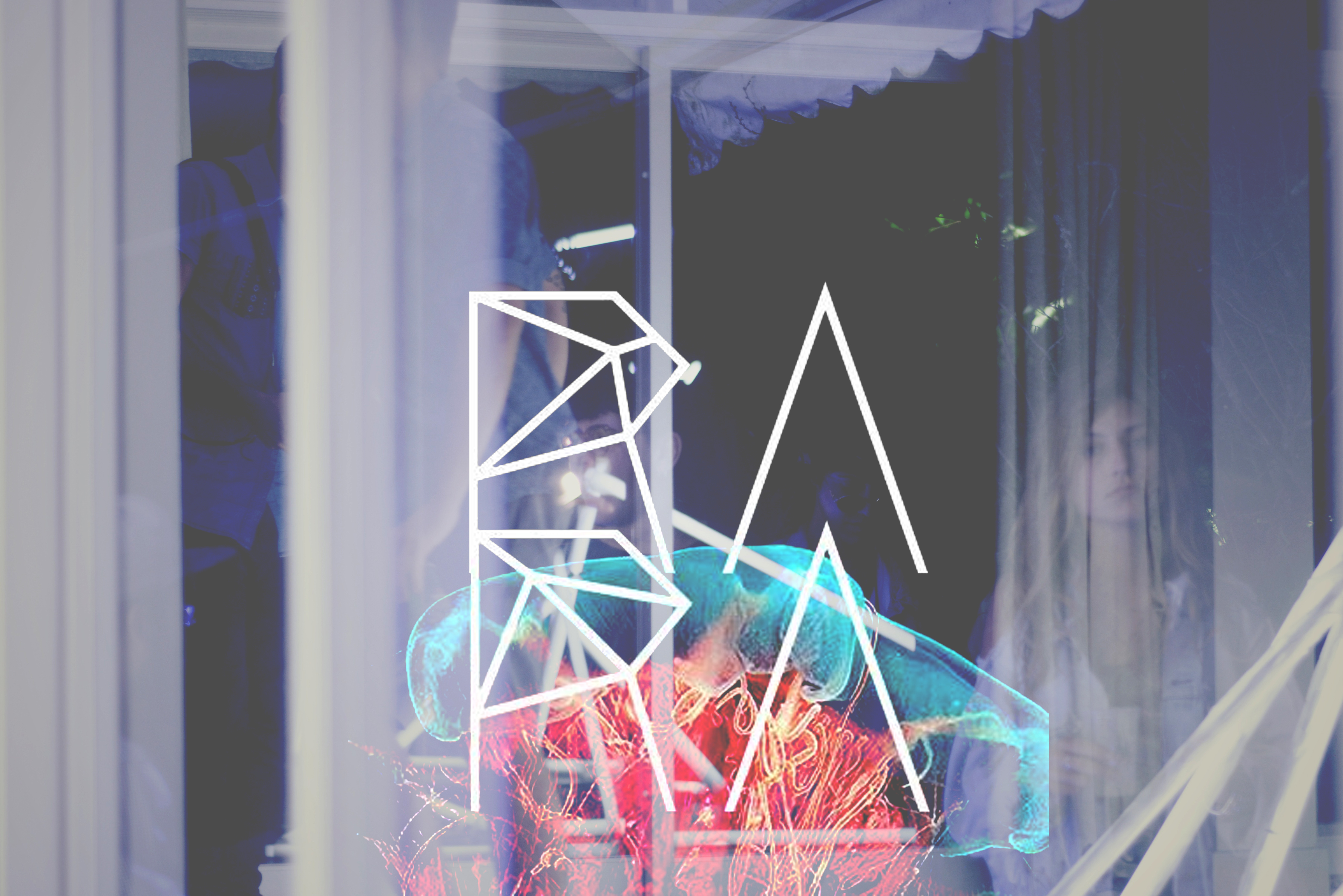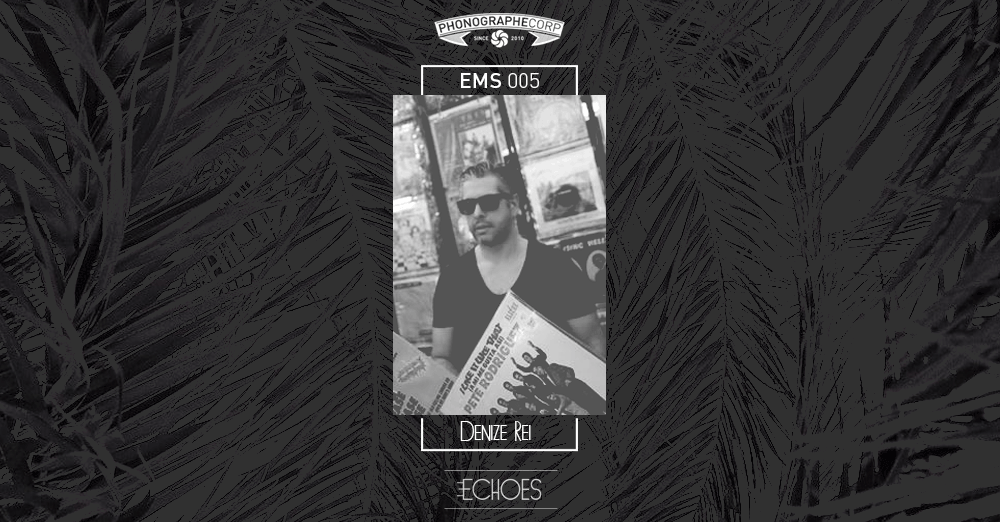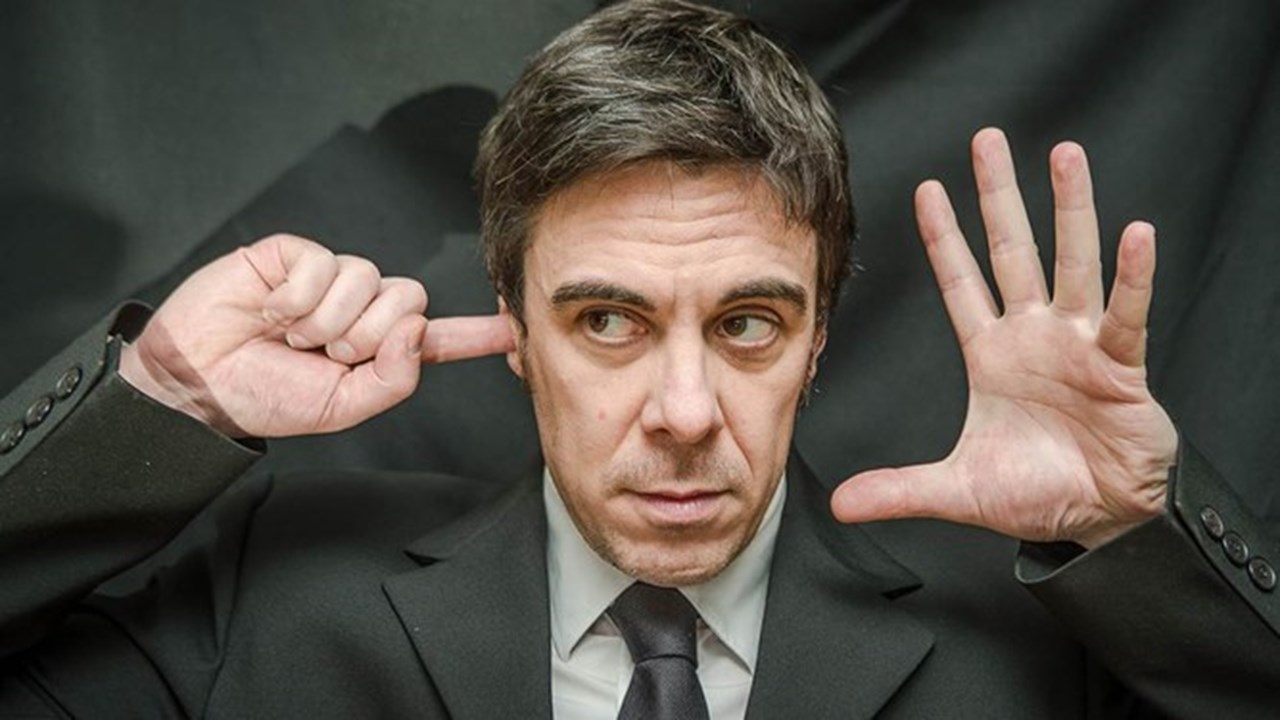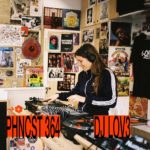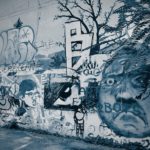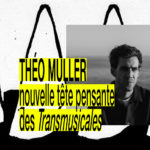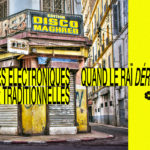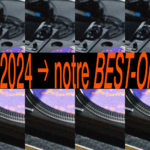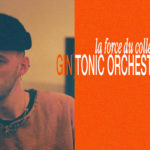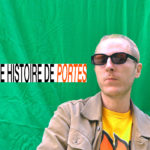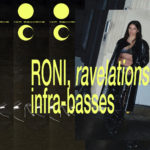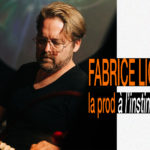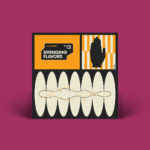La scène musicale pauliste actuelle est un exemple probant de ce que l’expérimentation artistique et la prise en compte d’une certaine dimension sociale sont en mesure d’apporter à l’échelle urbaine. De fait, cela fait maintenant quelques années qu’un mouvement de rue doté d’une identité particulière semble envahir cette jungle de béton, offrant un nouveau souffle à ses espaces, ainsi qu’une réelle dose d’enthousiasme à ses habitants.
The current Paulista music scene is none other than a prime example of what artistic experimentation combined to the taking into account of a certain social dimension are able to bring to a city’s scale. It indeed seems like a street movement with its own very special identity has been invading this Concrete Jungle, offering a new impetus to its spaces, as well as a handful of cheerful enthousiasm to its population.
– De gauche à droite / From left to right : DJ Tahira, Free Beats event @Virada Cultural, DJ Mauro Farina (Fondateur de / Founder of Free Beats)
Formé d’une dizaine de collectifs qui ont uni leurs forces au fil du temps, ce mouvement prône une égalité d’accès à la culture, et ce, en proposant une véritable alternative aux établissements culturels habituels. Lassés des prix trop élevés ainsi que de l’esprit bourgeois des clubs existants, ces collectifs viennent ainsi apporter une alternative pérenne à l’offre existante. Cela est par ailleurs mis en place conjointement au lancement d’une lutte pacifique contre les nombreuses difficultés sociopolitiques rencontrées par la ville, telles que la violence, la corruption et les importantes inégalités sociales. S’appuyant sur l’idée d’une réappropriation des espaces publics depuis longtemps délaissés de toute initiative constructive par le gouvernement, ils s’adonnent à l’organisation d’événements alternatifs d’une diversité et d’une richesse créative étonnantes.
Formed by a dozen of collectives, who joined their forces through the years, this movement vouches for an equalitarian access to culture, while delivering a genuine alternative to the pre-existing cultural establishments. Wearied by the existing clubs’ skyrocketing prices and their ridiculously poshy atmosphere, these collectives seem to be proposing a long-term alternative to the existing offer. This is done along with the launching of a pacific protest against the numerous sociopolitical issues, such as violence, corruption and the large social inequalities. Relying on the idea of the reclaiming of public spaces, long abandoned by any constructive government initiative, they are engaging in the organization of alternative events of a wondering and enriching creativity.
– Soirée Sonido Tropico / Sonido Tropico night @ Casa da Luz
Lancé par Thomas Harferlach, un allemand installé sur place, Voodoohop, le collectif à l’initiative de ce mouvement a débuté sa quête avec l’investissement du Centro. Ce quartier est considéré parmi les plus marginalisés de la ville, en raison de la présence de sans-abris emportés par la drogue et la délinquance. Un événement semi-improvisé en face d’un bar – fréquenté par une population friande de nouvelles explorations culturelles – vient ainsi donner le la à ces années d’expérimentation. Ce soir là, les premières notes de musique retentissent et les premiers pas de danse sont amorcés par les quelques sans-abris des rues environnantes. Intrigués, les clients du bar observent avec un mélange d’amusement et de curiosité. Les plus vaillants se lancent à leur tour sur la piste de danse et l’enivrement général envahit cet espace pourtant abandonné depuis de nombreuses années. Les habitants de rue partagent leurs histoires et leurs chorégraphies endiablées avec les gens présents et la nuit qui suit son cours, finissant par véritablement marquer les esprits.
Launched by Thomas Harferlach, a Sao Paulo-based German artist, Voodoohop, the collective at the initiative of this movement, began its quest through the reclaiming of the city’s Centre. The « Centro » is considered as being the most dangerous and marginalized districts of the city, as a result of the pervasiveness of homeless people, often took by drugs and delinquency. A semi-improvised event in front of a bar – which was often attended by people who seemed to crave for new cultural explorations – therefore marks the beginning of a new era. On that very night, the first musical notes began to sound and the first dance steps were initiated by none other than the few homeless people of the surrounding areas. Intrigued, the bar’s clients observed the scene with a mixture of amusement and curiosity. The most valiant of them threw themselves into the dancefloor and a collective elation invaded the whole space, however abandoned for so long. The street’s inhabitants shared their stories and wild choreographies with the rest of the public and the night took its course, ending up capturing the minds of everyone.
– Soirée Sonido Tropico / Sonido Tropico night @ Casa da Luz
À Voodoohop viennent s’ajouter Free Beats, Venga Venga, Carlos Capslock, Sonido Tropico, Coletivo Blum et bien d’autres, chacun apportant sa propre touche artistique à l’échelle du mouvement. Cette quête mène nombre d’entre eux à l’idée d’une « occupation urbaine » plus approfondie, par le biais de l’ouverture de squats où ils choisissent d’habiter, ainsi que d’organiser expositions artistiques et événements musicaux réguliers. Située dans le Centro de Sao Paulo, la Casa da Luz en est un exemple représentatif. De nombreux artistes et membres de collectifs y cohabitent, tout autant qu’ils y organisent de nombreux événements artistiques.
Voodoohop was then compounded by Free Beats, Venga Venga, Carlos Capslock, Sonido Tropico, Coletivo Blum and many other collectives, each delivering its own artistic touch to the movement. This quest is even currently leading several of them to the idea of a deepened « urban occupation », through the opening of squats, where they choose to live, as well as to organize art exhibitions and regular musical events. Located in Sao Paulo’s Centre, the Casa da Luz is one of the most representative examples of this. Numerous artists and members of collectives coexist therein, just as much as they develop their ideas together.
– Soirée Sonido Tropico / Sonido Tropico night @ Casa da Luz
À ces événements peuvent être vus des « maquilleurs chamaniques » (ce n’est pas une blague), qui décorent les visages du public de couleurs et de dessins d’inspiration indigènes ; des lives électroniques entremêlés de musiciens issus du Candomblé ou de la Capoeira, agrémentant l’écoute d’instruments traditionnels tel que le Berimbau ou l’Atabaque ; une projection gigantesque de films d’auteurs brésiliens et étrangers, ainsi que de dessins animés des années 1950 ; une installation immersive délivrée par de jeunes artistes locales ; une diversité impressionnante de styles, d’âges, de statuts sociaux et d’orientations sexuelles au sein du public, ainsi qu’une variété de boissons truffées de créativité en ce qui concerne le bar. De fait, le barman offre à chacun la possibilité d’inventer son propre cocktail – alcoolisé ou non – à base de douceurs locales, épices, fruits exotiques et légumes de saison. Une véritable pépinière de créativité pluridisciplinaire, qui vient marquer toute une génération.
Throughout these events can be seen “Shamanic makeup artists” (and this is no joke), who decorate the public’s faces with colors and drawings drawn from native inspirations; electronic lives sprinkled with Candomblé and Capoeira musicians, with traditional instruments such as Berimbau or Atabaque; giant projections of Brazilian and foreign arthouse films, as well as old black and white cartoons; an immersive artistic installation delivered by young local artists; an impressive diversity of styles, ages, social statuses and sexual orientations within the public, as well as a large variety of drinks at the bar, each being more genuinely creative than the other. Indeed, the place’s very special barman actually offers the possibility of inventing its own cocktail – alcoholic or not – based on local delicacies, spices, exotic fruits and season vegetables. A genuine nursery of multidisciplinary creativity, which marks a whole generation.
– De gauche à droite / From left to right : L’un des espaces de la Casa da Luz / One of the Casa da Luz spaces, Joueur de Berimbau / Berimbau musician (Sonido Tropico @ Casa da Luz)
Au cœur d’une période de contestation sociale et politique, ces collectifs pointent du doigt les problèmes de corruption et d’inégalités, tout en offrant à la population la possibilité de prendre la parole, s’affirmer et s’exprimer sur les idées débattues de manière artistique et pacifique au travers d’événements de rue gratuits. Similaires à des manifestations, ces derniers investissent les endroits les plus symboliques de la ville pour faire passer leurs messages. La position du gouvernement face à ce mouvement est d’autant plus mystérieuse qu’elle trahit l’état actuel de la société brésilienne. Initialement répressives et réticentes à ces initiatives, les autorités locales commencent par les réprimer. Au fil du temps et face à leurs répercussions positives, le gouvernement s’ouvre cependant graduellement à une certaine tolérance à l’égard de ces événements. Une tolérance qui semble même aujourd’hui déboucher sur diverses collaborations à l’occasion d’événements organisés par la ville.
In the midst of a time of social and political contestation, these collectives point fingers at problems such as corruption and inequality, while offering the population a chance to take the floor, assert itself on the debated ideas through a pacific and artistic way brought by free street events. Similar to manifestations, the former invade the city’s most symbolic places in order to send their messages. The government’s position on this movement is all the more mysterious as it betrays the current state of the Brazilian society. Initially repressive and reluctant to these initiatives, the local authorities began by suppressing them. Though over time and in the face of their positive repercussions, the government gradually opens itself to a certain tolerance towards these events. A tolerance which currently even seems to be leading to few collaborations on the occasion of several events organized by the city.
Ainsi, le jour de l’anniversaire de celle-ci, c’est à Voodoohop qu’est confiée l’organisation des animations musicales sur les espaces publics. Quant au weekend de la Virada Cultural – événement Pauliste à l’initiative du gouvernement au cours duquel les rues sont envahies d’un grand festival urbain – c’est à Free Beats qu’est offerte la possibilité d’investir le Parque da Luz. Les choses évoluent et les autorités locales parviennent ainsi à une certaine prise de conscience. Il reste cependant important de noter que cette prise de conscience n’est à ce jour que partielle, puisque quand bien même ces collectifs soient conviés à animer la ville, ils ne sont cependant jamais amenés à être financés par celle-ci. Les coûts et risques liés à ces événements restent ainsi à la charge de leurs organisateurs, laissant ces derniers dubitatifs quand à la bienveillance du gouvernement à leur égard.
Thereby, on the day of the city’s anniversary, Voodoohop was the organization to which was offered the possibility of organizing some of the public spaces’ musical animations. As for the Virada Cultural’s weekend – a Paulista event during which the city’s streets are invaded by a giant urban festival – Free Beats was the one offered the chance to animate the Parque da Luz. Things are moving and the local authorities are slowly reaching a certain awareness. Although it seems important to note that, so far, this awareness only seems to be partial, as even though these collectives are managing to be invited to animate the city, they nevertheless are never being financed or subsidized by it. Indeed, the costs and risks associated to these events are still only borne by their organizers, leaving them sceptic as for the government’s goodwill unto them.
Il s’agit là d’un mouvement artistique et social qu’il serait intéressant de suivre de près, tant culturellement que politiquement. Les prochaines années risquent d’être marquées d’idées intéressantes, ainsi que de répercussions sociopolitiques prometteuses que notre continent gagnerait à observer de plus près. En attendant de découvrir la suite, Echoes vous propose d’agrémenter la lecture de l’écoute de l’un des plus fervents défenseurs de ce mouvement, DJ Tahira. À suivre …
This inexorably seems to be an artistic and social movement which it might be interesting to follow closely, both culturally and politically. The coming years might be marked by a handful of interesting ideas and promiscuous socio-political repercussions, whose observation could prove beneficial to our continent. While awaiting to discover the future ahead, Echoes invites you to complement the reading with the listening of one of the the most fervent supporters of the movement, DJ Tahira. To be continued…
Pages Facebook : Voodoohop, Carlos Cabslock, Free Beats, Sonido Tropico, Coletivo Blum
Crédits Photo : Mucio Ricardo & Sofia Lambrou

